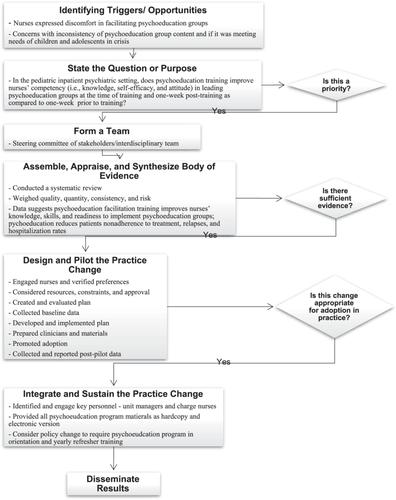According to the 2020−2021 National Survey of Children's Health, 23.3% of children and adolescents met criteria for one or more mental, emotional, developmental, or behavioral problems. However, the prevalence of depression, anxiety, and post traumatic stress disorder have risen dramatically since the COVID-19 pandemic, leading to an increase in suicidal ideations, completed suicides, and pediatric psychiatric hospitalizations. There is a critical need for high quality mental healthcare treatments, including psychoeducation. Inpatient psychiatric nurses are well positioned to lead psychoeducation groups, but few receive training.
Nurses at a designated inpatient pediatric psychiatric unit expressed discomfort in facilitating psychoeducation groups.
This is a one-group prepost and follow-up quality improvement study designed to improve the quality of psychoeducation group facilitation skills provided by nurses at a child and adolescent inpatient psychiatric unit. A convenience sample of nurses (N = 16) participated. Baseline (T1), post-test (T2), and follow-up (T3) data were collected regarding nurses' self-efficacy, evidence based-practice attitudes, and knowledge of psychoeducation group facilitation.
Nurses received 45 min of psychoeducation group facilitation education and 15 min of skills simulation.
The nurses' knowledge, self-efficacy, and attitudes toward evidence-based practice when facilitating psychoeducation groups increased significantly from the baseline to the post-test, which was sustained from the post-test to the follow-up period.
Study findings indicate the importance of supporting nurses in their role of psychoeducation group facilitation through education and program structure. Further research is needed to assess longer term sustainability and efficacy in leading psychoeducation groups.


